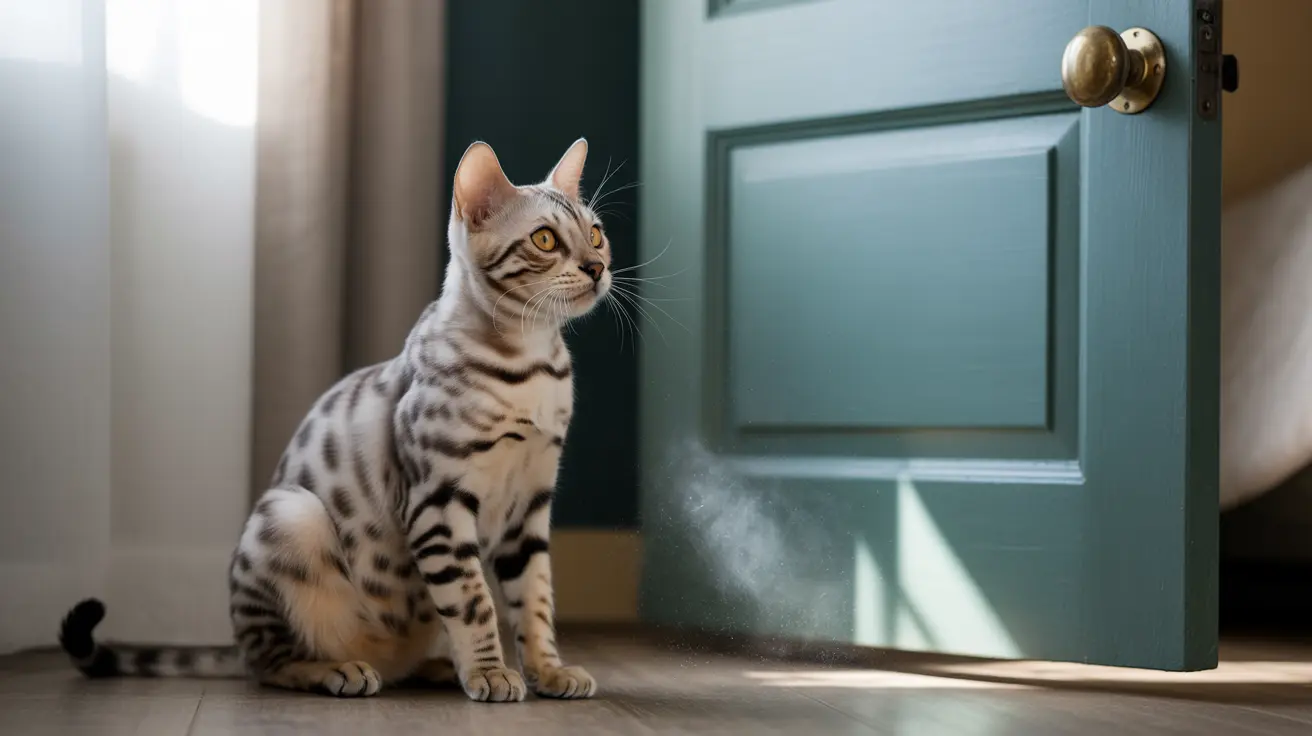Have you ever wondered why your feline friend camps outside your bedroom door like a furry sentinel? This common cat behavior, while sometimes puzzling to pet parents, actually stems from several natural feline instincts and emotional needs. Let's explore the fascinating reasons behind your cat's door-waiting habits and learn how to address this behavior effectively.
Understanding why cats wait outside bedroom doors requires diving into their complex social nature and territorial instincts. From seeking attention to expressing curiosity, this behavior reveals important aspects of the unique bond between cats and their human companions.
Natural Instincts and Territorial Behavior
Cats are naturally territorial creatures, and closed doors represent both a boundary and a mystery in their domain. Your bedroom door isn't just a barrier—it's a point of interest in your cat's carefully monitored territory.
When your cat sits outside your bedroom door, they're often engaging in instinctive surveillance behavior. This positioning allows them to:
- Monitor movement and activity
- Guard their territory
- Keep track of their human family member
- Respond quickly to any changes in their environment
The Social Bond Factor
Despite their reputation for independence, cats form strong emotional attachments to their owners. This social bond plays a significant role in door-waiting behavior.
Research from animal behavior experts shows that cats develop attachment styles similar to human infants, leading them to seek proximity to their caregivers. When prevented from accessing you by a closed door, many cats will maintain their vigil until they can reconnect.
Environmental and Sensory Motivations
Your cat's keen senses make closed doors particularly intriguing. They can:
- Hear movements and conversations through the door
- Detect changes in air flow under the door
- Smell interesting scents from the other side
- Notice light changes around the door frame
These sensory experiences can make the space behind the door seem particularly appealing, especially during quiet nighttime hours when other stimuli are limited.
Managing Door-Waiting Behavior
If your cat's door-waiting behavior becomes problematic, several strategies can help:
Create Alternative Comfort Zones
- Set up cozy sleeping areas away from the door
- Place cat trees or window perches in other rooms
- Provide engaging toys and scratching posts nearby
Establish Consistent Routines
Cats thrive on predictability. Creating regular schedules for feeding, play, and attention can help reduce anxiety-driven door monitoring.
Environmental Enrichment
Ensure your cat has plenty of stimulating activities available when doors are closed:
- Interactive toys and puzzle feeders
- Climbing structures and observation posts
- Safe outdoor viewing areas (like window seats)
Frequently Asked Questions
Why does my cat wait or meow outside my bedroom door at night?
Cats are naturally more active during dawn and dusk (crepuscular behavior). When they hear movement or want attention during these active periods, they're likely to vocalize and seek interaction with you.
What causes cats to sit and wait outside bathroom or bedroom doors?
This behavior is typically driven by curiosity, territorial instincts, and social attachment. Cats want to monitor their environment and maintain proximity to their human family members, even when separated by doors.
How can I stop my cat from scratching or vocalizing outside closed doors?
Provide enrichment activities elsewhere in the home, establish consistent routines, and avoid reinforcing the behavior by responding to meowing. Creating comfortable alternative spaces can help redirect their attention.
Is it normal for cats to want to be near their owners when behind closed doors?
Yes, this is completely normal behavior. Cats form strong bonds with their owners and often prefer to maintain close proximity, even when separated by doors.
What does it mean if my cat persistently waits outside a door but doesn't enter when opened?
This behavior often indicates curiosity rather than a true desire to enter the room. Your cat may simply be monitoring the space or maintaining awareness of your location within their territory.
Remember that your cat's door-waiting behavior, while sometimes frustrating, is a natural expression of their instincts and attachment to you. With patience and proper environmental enrichment, you can help your cat feel secure and content, whether doors are open or closed.






